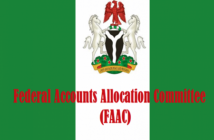By Sani Bello Hamza
It is no longer “Breaking” in the News that the court of appeal sitting at Abuja had on Friday 17th November, 2023 dismissed the Appeal filed by the incumbent governor of Kano state Abba Kabir Yusuf (AKY), against the judgment of Election Petition Tribunal of Kano State. The three man panel unanimously dismissed the appeal and awarded a cost of 1 Million Naira against the Appellant in favor of the 1st respondent. While concluding the lead judgment, learned Justice of the Court of Appeal Justice Moore Aseimo Abraham JCA said; “therefore, I found no merit in this appeal which is liable to be and is dismissed accordingly”. The court dismissed the appeal and affirmed the decision of the Tribunal.
However, after the release of the CERTIFIED TRUE COPY (CTC) of the judgment, there seems to be “contradictions” in the closing paragraphs of the lead judgment. The contradictions can be seen in the paragraphs set out hereunder where the learned justice said;
” I will conclude by saying the live issues in this appeal are hereby resolved in favor of the 1st respondent and against the Appellant.”
“In the circumstances, I resolved all the issues in favor of the Appellant and against the 1st respondent”
“Therefore, I found no merit in this appeal which is liable to be and hereby dismissed”
The learned Justice in the first paragraph set out above resolve the issues in favor of the 1st respondent (APC). However, in the second paragraph the issues were depicted to be resolved in favor of the Appellant (Abba Kabir Yusuf). The Appeal was dismissed in the last paragraph set out above.
The first and second paragraphs set out above are contradictory and cannot be placed side-by-side. If the issues in the appeal were resolved in favor of the Appellant, then, the appeal will be meritorious and be allowed. However, if the issues in the appeal were resolved in favor of the 1st respondent, the Appeal will be unmeritious and be dismissed accordingly.
In the instant case, if we carefully peruse through the record, we will find out that the issues in the Appeal were resolved against the Appellant (Abba Kabir Yusuf). Thereby leading to the dismissal of the appeal in it’s entirety.
From the release of the CTC to this moment, I came across various posts by NNPP supporters celebrating the typographical errors found in the CTC and claiming the NNPP will not appeal to the supreme court.
I am not a naysayer nor a seller of bad news, however, the truth must be told and the truth is simple and very clear. The mistakes are mere typographical errors and could be corrected by the court, suo moto.
The errors are nothing but clerical or typographical errors and could be corrected under the “Slip Rule”. The “Slip Rule” give judges the liberty to effect corrections in their judgements after it has been delivered as in this case.
Literally, whenever a Court found out there is an omission, clerical or typographical error(s) in it’s judgment or ruling, the court can correct such mistakes and serve the parties with a corrected copy in compliance with the extant rules of the court. Also, a party to the proceeding can apply to the court seeking for an order of the court to correct the mistakes and the court will correct the mistakes in the interest of justice.
The provision of Order 8 rule 16 of the supreme court Rules is unambiguous where the rule provides thus; “The Court shall review any judgment once given and delivered by it save to correct any clerical mistake or some error arising from any accidental slip or omission, or to vary the judgment or order so as to give effect to its meaning or intention.”
There are many Judicial decisions in relation to this issue. However, the National Industrial Court in a recent case between Major General Ijioma V. Nigerian Army & 4 ors, where the claimant applied to the court through a Motion on Notice seeking for an order of the court to effect correction in the judgment delivered in their case. The court granted the application, effect the corrections, and serve the parties with a corrected copy of the judgment. It’s very simple.
In the instant case, the Court of Appeal can decide to correct the mistakes suo moto or through application by a party to the proceeding. The supreme court can as well cure the mistakes. There is no cause for alarm or celebration. After all the Judges are also Humans and are not devoid of making mistakes.
I am sure the learned counsels of the Appellant will not fold their arms and rely on the typographical mistakes in the judgment; they will exercise their right to appeal by appealing to Supreme court. May Justice Prevail.
Sani Bello Hamza is a Law Student at Ahmadu Bello University, Zaria he writes from Zaria and can be reached through his email; sanibellohamza@gmail.com or 09013506168.




